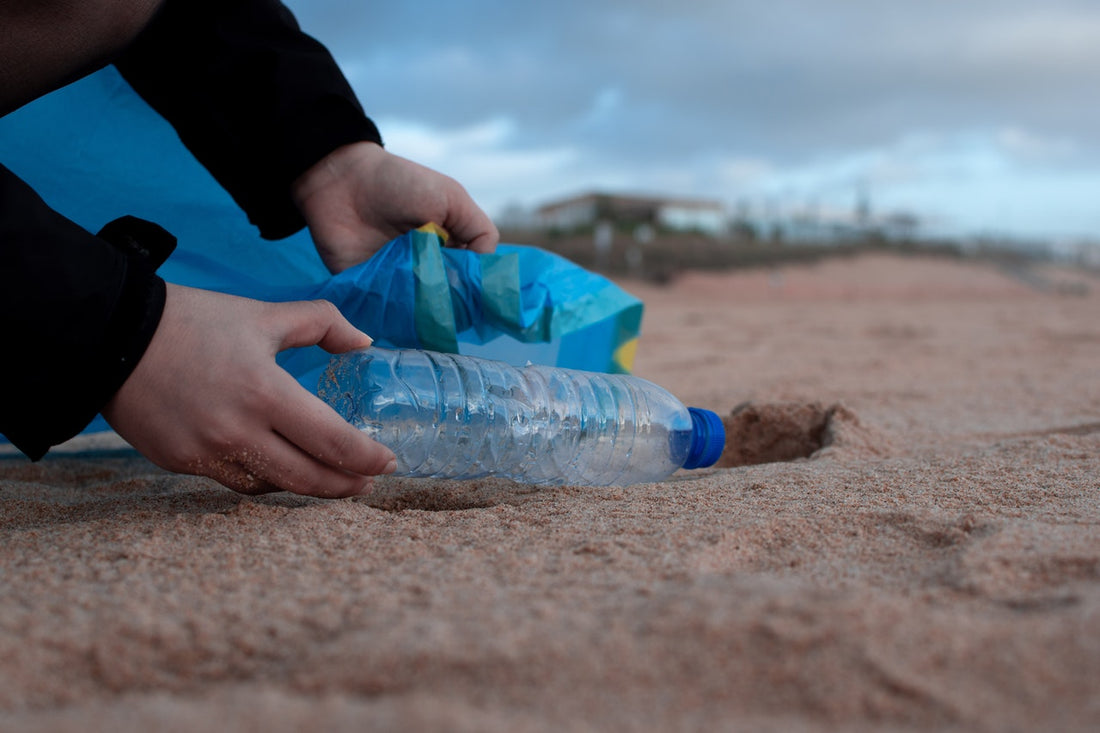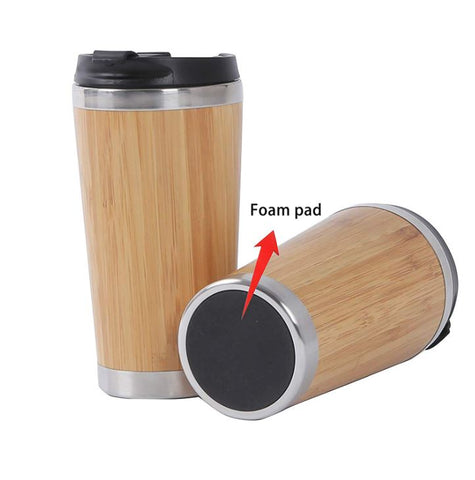
First Steps to Sustainability
Share
Published March 2021
Updated January 2022
We know that the switch to an eco-friendly lifestyle is a journey, and that everyone is at different points along that journey. That’s okay! That means that there are new people joining the sustainability movement every day, and there are also people who have kept up with sustainable living for years.
Consider Zero Waste
If you do want to have a positive impact on the environment but you don’t really know where to start, this blog is for you! Wanting to make a change is the first step to begin your sustainable lifestyle journey. You might be overwhelmed by the idea of changing lifelong habits to correspond with your newfound desire to make positive change?
We endeavor to provide you with the information, tips & tricks, and the products you need in order to make this transition as smooth as possible! We post a few blogs per year that will help bump your sustainability to the next level. Do you know where you fit in with the rest of humanity on this issue?
- 74% want to reduce their impact on the environment and nature by a large amount.
- 61% want to change their lifestyles and
- 31% say they have made major changes to live more healthy.
- Younger generations are consistently more eager to make a significant effort to become more environmentally friendly and more helpful to others. As many as seven in ten Gen Z respondents (70%) and two-thirds of Millennials (66%) say they want to be more environmentally conscious.
And as far as Americans are concerned, take a look at these numbers by EcoFriendly Habits:
48% of U.S. consumers are ready to change their consumption habits to save the environment.
And according to a report by The New Climate Economy, we could save $26 trillion by 2030 if we start living sustainably.
That's quite some numbers! Where are you at with this movement?
Consider also:
Nearly 70% of consumers in the U.S. and Canada think it is important that a brand is sustainable or eco-friendly, according to a new study by IBM and the National Retail Federation.
The research polled about 19,000 customers from 28 countries, ranging from Gen Z to baby boomers (ages 18-73) to find out how individual shopping decisions are changing.
North American respondents, which numbered 3,500, increasingly prefer sustainable brands. 69% of environmentally-conscious buyers willingly pay a premium for recycled products, and more than half of these buyers are ready to change their shopping habits to reduce negative impact on the environment.
Almost 80% of North Americans want to know the origin of the products they buy, and 69% of these consumers would pay a premium for brands that provide this information.
Globally, more than a third (40%) of respondents are purpose-driven consumers, who select brands based on how well they align with their personal beliefs. Consumers are increasingly choosing products that are eco-friendly, transparent and in line with their values. A third of respondents say they will stop buying a product if they lose trust in the brand.
The environment is a priority not only for North American customers. Globally, nearly eight in 10 consumers surveyed say they value sustainability. Over 70% of these respondents would pay, on average, 35% more for eco-friendly brands.
And specifically during the pandemic the numbers certainly changed.
With people all across the U.S. spending more time at home during coronavirus quarantines, many Americans were rethinking their habits and trying to live more sustainably. According to a survey, nearly two-thirds of people had been inspired to pick up more eco-friendly habits during the pandemic — and beyond.
The survey, conducted by OnePoll, surveyed 2,000 Americans to find out how COVID-19 changed the way they think about living sustainably. Results show 70 percent of those surveyed have become more aware of their eco-unfriendly habits while being home more during quarantine.
More specifically, 64 percent of respondents have had an eco wake-up call, inspiring them to make various eco-friendly changes to their habits. For example, 55 percent of those surveyed said they are recycling more, 43 percent said they are using less paper products, and 44 percent are reducing their food waste.
Which goes along with the good advice from the EPA: if you reduce, reuse and recycle you’re taking great strides in helping conserve energy and reduce pollution and greenhouse gas emissions.
Findings from studies show that people are put off by actions they believe are difficult. When trying to be healthier and more sustainable, they are most likely to alter aspects of their life if they perceive it to be relatively easy to do so.
This typically translates to behaviors that improve personal wellbeing, ethical purchasing, and actions within the household such as saving water at home, eating healthy food, choosing products with less packaging, and buying from responsible brands.
In other words, when people are trying to be healthier and more sustainable, they are more likely to alter aspects of their life if they perceive it to be easy to do so. That’s why it’s so important to take it one step at a time.
One step that’s easy to take is switching out your light bulbs from incandescent light bulbs to halogen and mostly LED bulbs.
Yes, this light-bulb switch is mandated by law, but don’t let that negate your positive efforts in complying to this. Kudos!
One last topic as we circle around to zero waste. Despite the name, zero waste does NOT mean all or nothing! Instead, zero waste is the idea that you make mindful changes that help you re-think trash and how it’s created, allowing you to reduce where you can.
You don’t have to make all of the changes at once. In fact, that’s usually how people give up. Gradually changing your habits to become more sustainable allows you to be successful in each of the small changes you make. You’ll be building a strong foundation based off of changing habits, not just forcing unnatural change!
Reusables
A big part of the zero waste lifestyle is about shifting from disposable products to reusable products. Right now, you might grab a quick lunch out or stop by a coffee shop on your way to work in the morning. These seem like harmless actions, but many times to-go food is packaged in plastic and comes with plastic utensils and straws.
A simple thing you can do to lower your waste is asking for your food without utensils or plastic straws. Have your own reusable options on-hand.
Try out a reusable coffee mug for your morning coffee run, and carry around a reusable water bottle if you don’t have one already!
With a little forethought, your zero waste lifestyle doesn’t need to mean sacrifices. Instead, upgrade that paper coffee cup to an insulated alternative that will keep your coffee hot for hours!
Swap out those plastic grocery bags with larger, more durable reusable bags.
No sacrifices here!
When faced with a choice, we recommend glass or paper over plastic. Choose that glass jelly jar at the store, then reuse that jar!
If you forget your grocery bags at the store, opt for paper bags, and try to remember your reusables next time.
Give yourself grace and room for improvement. Each day you’ll get better at it.
It is important to remember that sustainability looks different for everyone. We all don’t have access to the same resources and can’t do EVERYTHING that is suggested for sustainable living. This is okay!
Every action from every individual matters, so just keep looking for solutions that work for your life and don’t be discouraged if you aren’t able to do everything.
So…where do you think you fall?
I have room to improve
You’ve gotta start somewhere! It may seem daunting, but zero waste starts one step at a time.
Try swapping out plastic bottles for reusable ones. Or get yourself a reusable insulated mug or thermos for your drink needs. And don’t forget your reusable grocery bag.
You don’t need to make every change at once! Choose which choices work best with your lifestyle and stick to them.
You’ll be making a difference and find yourself proud of your efforts.
I AM getting greener
We don’t need a handful of people doing zero waste perfectly. We need millions of people doing it imperfectly.
You’re awesome, just for making an effort. YOU, by yourself cannot change the universe. However, your choices, step-by-step are helping!
You’ve been cutting out plastic, composting, and bringing your reusables—that’s great! Now? It’s time to consider conscientious consumerism.
Easy first steps might mean switching out items you currently use now with wood products. Like beer mugs and non-breakable wine tumblers.
What do you shop for?
Consider wood products as alternatives to plastic both in your home decor and in your kitchen. Shop here.
Are you looking for more ecofriendly decorating tips and tricks? We've got you covered! Check out the rest of our blog for more ideas today!
AND:
Get inspired, learn why and find new, high-quality products by visiting our website.
Our brand is a group of people who love life, outdoors, RV life, cabin living and endeavoring to make a difference simply one step at a time. We're every age and we often get excited viewing new products that come out during happy hour on Friday evenings!
We'd love to have you join us!
Sign up below and don't forget to follow us on your favorite social media channel.
click here to learn more about us today!




1 comment
Great post!
Thanks for reminding us that it’s all about taking little steps towards being good stewards of our home, and that we don’t need to do it all at once…don’t let perfect be the enemy of good! ❤️
Love your blog!